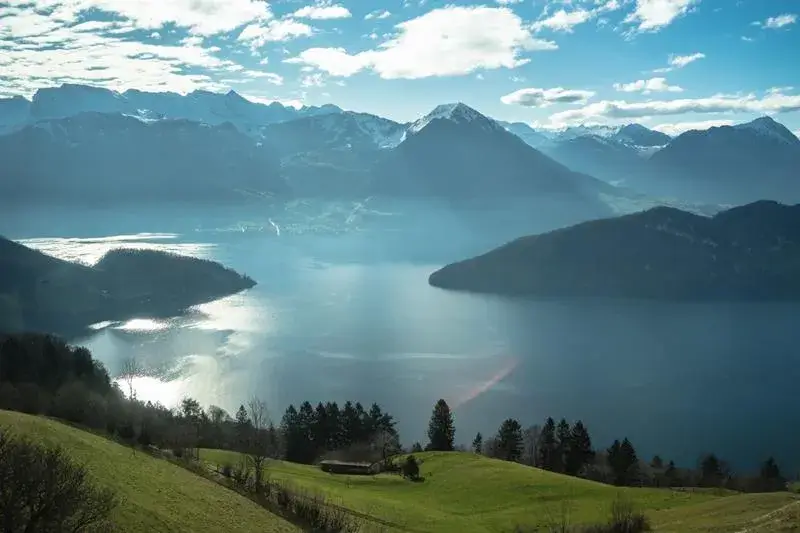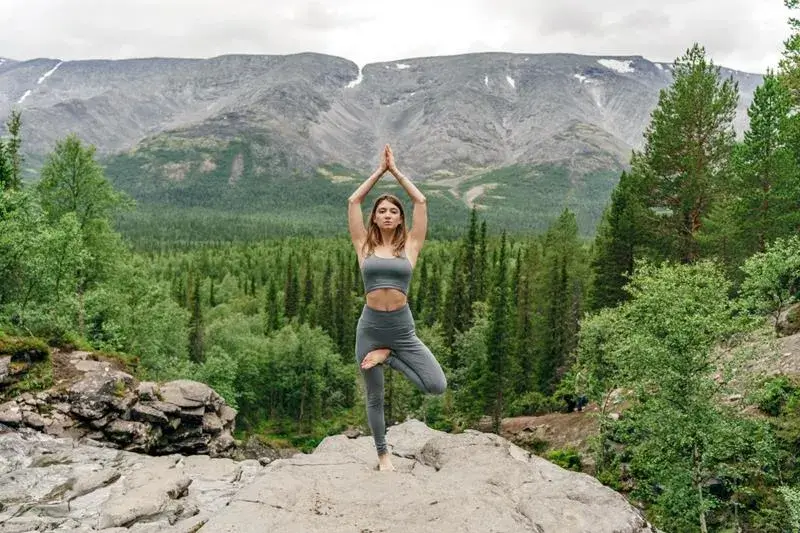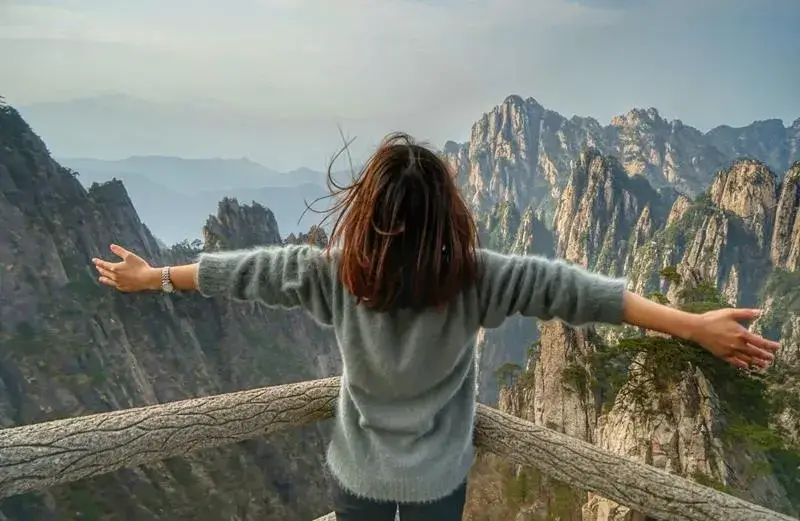Just picture it: towering mountains, complete silence, no phone calls, no deadlines – just you and nature. After such an escape, you return refreshed, mentally clear, and profoundly calm – that is the real power of mountain retreats. But what is it that makes them so powerful? Let’s explore it.
What does science say?
Stress level goes down
Cortisol, the body’s main stress hormone, is released by the adrenal glands in response to pressure and anxiety. A retreat mountain setting removes most of the triggers that keep cortisol levels high.
A digital detox during a mountain retreat gives your nervous system a much-needed break from the constant stimulation of screens and social media. Meanwhile, living in tune with natural rhythms – waking with the sunrise and resting at sunset—helps reset your body’s stress management system, the hypothalamic-pituitary-adrenal (HPA) axis, promoting overall balance and calm.
“Happiness hormones” get boosted
Taking a mountain retreat offers your nervous system a chance to recover from the nonstop stimulation of screens and social media.
Immersing yourself in nature also triggers the release of the brain’s natural feel-good chemicals:
- Serotonin: Boosted by sunlight and nutrient-rich meals during the retreat, with yoga and breathwork further enhancing its production.
- Dopamine: Shifts from quick digital hits to deeper rewards like meditation or awe-inspiring views, activating the brain’s reward center sustainably.
- Endorphins: Released through physical activities like hiking or yoga, creating a natural post-workout euphoria.
Together, these effects create a powerful reset for both mind and body.
New neural connections spark to life
This is where neuroplasticity comes in — the brain’s ability to rewire itself. When you’re learning new things (like mindfulness or breath work), living mindfully, and exploring a new environment, your brain creates new pathways.
Nature supercharges this process. Exposure to green and blue environments (like forests and lakes) increases alpha brain waves — those linked to creativity, focus, and deep calm. A retreat in the mountains doesn’t just relax your mind — it literally strengthens it.
Why do we sleep better on retreat?
This fizzy drink starts with just ginger, sugar, and water—fermented with the wild microbes naturally found on fresh ginger.
The retreat lifestyle aligns beautifully with these needs:
- Natural light cycles: Sunlight in the morning signals your body to reduce melatonin, and darkness at night helps its production — unlike screen light, which interferes with sleep;
- Cool nights: Especially in the mountains, evening temperatures drop. This helps the body shift into recovery mode faster;
- Silence: Natural quiet (so rare in cities!) lets your brain enter deep, restorative sleep phases. Cortisol stays low, and the brain clears toxins during REM and slow-wave sleep.
Together, these factors create the perfect environment for deep, rejuvenating rest, which amplifies the mental and physical reset a retreat provides.

Healing power of mountain retreats
Their height and silence create distance from daily distractions, offering clarity and grounding. The solitude feels profoundly healing, and climbing to the top mirrors the inner journey of breaking limits and rediscovering your true self.
It’s not just the scenery—it’s also what happens to your body and mind in this unique environment:
- High-Altitude Air – Thinner mountain air boosts red blood cell production, enhancing oxygen flow, endurance, and mental clarity—effects that last beyond your retreat.
- Awe Inspires Healing – Sweeping mountain views evoke awe, which calms the mind, reduces inflammation, and lifts overall well-being.
- Cooler Temperatures, Better Sleep – The naturally cooler mountain climate promotes deeper, more restorative sleep.
- Brain & Body Workout – Hiking uneven trails engages more muscles, sharpens coordination, and boosts brain adaptability.
- True Silence – Mountains offer a rare, profound quiet that lowers stress and resets your nervous system like few other places can.
All-natural retreats offer a selection of wonderful benefits; nevertheless, mountain retreats are designed for individuals searching for deep change—from the inside out.
How to prepare for a wellness holiday in the mountains
To ensure you make the most of your retreat, start out with a few defined intentions. Are you looking for stress relief? Better sleep? More clarity or emotional balance? Set your goals—allow them to inform your experience.
Before diving into wellness, learn a few preparation tips:
- Slowly reduce screen time before you go. This makes the digital detox easier.
- Pack light, comfortable clothing suitable for both nature walks and indoor practices.
- Take only travel essentials that will make your trip comfortable.
- Bring a journal, book, or any personal item that helps you reflect or relax.
- Be open to stillness and disconnection — that’s where transformation begins.
Some common retreat areas in the U.S. include mountain ranges such as the Rocky Mountains (Colorado, Utah), Appalachians (Tennessee, North Carolina), Sierra Nevada (California), and mountainous regions of Washington and Oregon. For a more luxurious experience, retreats allow for private, quiet, and are generally accompanied by upscale amenities. Cost-friendly retreats – often offering shared rooms and spaces – lead to simpler and collective experiences; this can often feel more meaningful.
A key quality of a mountain retreat is that the effects do not end when you leave. The calm, clarity, and deeper connection you experience can ripple into your everyday life — helping you move with more awareness, resilience, and ease. Whether it’s better sleep, a clearer mind, or simply breathing more deeply, the positive impact of mountains stays with you – long after the trail ends.

Author

Alexandra Mukhina
Content writer on https://rythmoftheworld.com Experienced linguist and translator with a knack for crafting and refining diverse content. My goal is to produce engaging, informative texts that captivate readers. Passionate about reading, music, traveling, and exploring new avenues of personal growth.



